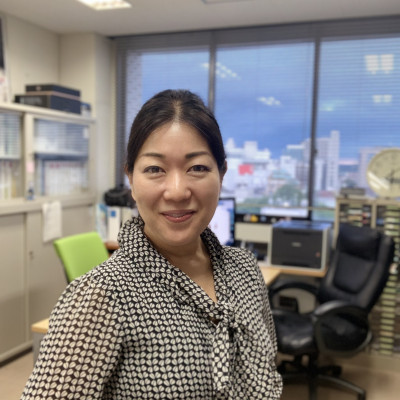Sessions / Location Name: F33 HYBRID
Hybrid Location
Location: F33
Building: Miwa Campus Building < The University of Nagano
Virtual: You cannot enter virtually via this page. Click on the titles of individual presentations or go to the Live Page
Benefits of using Language Learning Histories (LLHs) in teacher training #2975
Successful language learners need to learn beyond the classroom (Richards, 2015). These contexts enable learners to develop and exert their learner autonomy, as they decide what and how to learn. This presentation focuses on experiences with two Malagasy student teachers co-authoring a paper in which they tell their English language learning histories (LLH) beyond the classroom. Beyond the classroom, every learner has their own ways of learning, which may depend on their learning contexts and their motivation and interests. Through writing LLH, the student teachers realized how their interests constantly triggered their motivation to create opportunities to learn outside the classroom, a context where support is scarce. They also became aware of the disconnection between in-class and out-of-class learning content. These experiences helped them reflect on their future practice and how they would like to implement classes. Through the process of writing experiential narratives in the paper, we were able to make some significant insights on the potential benefits of the use of LLH in language learning and teacher training. Accordingly, participants will leave the presentation with a deeper understanding of learner experience and autonomy that can help them in developing practices to facilitate language learning beyond the classroom.
Comparing the online and paper-based versions of the TOEIC L&R #2893
Shōzan University (a pseudonym) uses the Computerized Assessment System for English Communication (CASEC) for placement. Students complete the CASEC at home in late March, then the TOEIC Listening & Reading (L&R) a few weeks later once classes have begun. Two cohorts, 2018 and 2019, completed a paper-based version of the TOEIC L&R; however, two cohorts, 2020 and 2021, completed a novel online version of the TOEIC L&R, which reportedly results in similar scores as the conventional paper-based TOEIC L&R (IIBC, 2020). Author (2020) revealed that all cohorts had similar CASEC scores; however, TOEIC L&R scores from the online version were significantly higher than from the paper-based test. Author (2020) also reported on a sub-group (n = 57) who completed both versions of the TOEIC L&R, with online test scores being significantly higher than the conventional paper-based scores. However, the former was completed without proctors. The current presentation will report on a study from February 2022. Participants (n = 80) will complete the two different versions of the TOEIC L&R with participants randomly assigned to two groups (i.e., paper-online or online-paper). Both groups will complete both tests under supervision.
Developing an in-house corpus and high-frequency word list for science majors #2854
This reports on a work-in-progress of the development of an in-house corpus and high-frequency word list of the corpus for a Science and Engineering university in Japan. Students read scientific articles as part of their required English courses. However, in an informal survey, while some students were positive about the prospects of reading specialized academic articles in English, others felt that it would be too challenging. In order to bridge the difficulty gap, an in-house corpus of articles recommended by the science faculty and a high-frequency word list of the corpus are being developed. Interviews and surveys will be conducted with selected members of the science department to understand the nature of articles written in English that these members would recommend for graduate students. The articles will be gathered to create a corpus of one million words, and processed for high-frequency words using AntConc (Version 4.0.2) (Anthony, 2021) a free online vocabulary profiling software. These will be compared against the new academic word list and further analysed for specialized words. The findings will help to construct an informative vocabulary list for the students in graduate school, and in the future, this could be further refined for undergraduate students.
F33 Test #3299
You can test the Zoom link for F33 here. (The room camera is not switched on yet)
Setting up a successful COIL project #2858
Collaborative Online International Learning (COIL) partnerships provide faculty members with opportunities to collaborate with colleagues at institutions in different countries, and allow students to learn in a globally networked classroom in the form of virtual mobility. A COIL project begins with finding a teaching partner at a university in another country, and then together developing a six- to-eight week learning experience for both their classes in which all students learn, exchange, and interact with each other without ever leaving their own country. The thought of developing and embedding a successful international online learning experience with students and the professors themselves at different institutions may sound exciting, but it can also be very overwhelming. With so many variables at play - technological access, language differences, time zones, and cultural and pedagogical differences - faculty may not know where or how to begin. The two presenters, professors from Canada and Japan, will share about their experience collaborating on a COIL project for their students, who were in different majors and had different levels of English. Topics will include initiating a partnership, setting feasible goals and objectives together, and troubleshooting when best-laid plans do not always work out.




